Nutritious food is often labelled as ‘expensive’ and to a certain extent, rightly so. The much revered nutrient-dense foods like multi-grain breads, almonds, olive oil or organic foods are all steeply priced, which discourages many to include them in their daily diets. Moreover, unhealthy foods [such as white bread, vada pav, or wafers] are comparitively cheaper, more readily available and taste great, making eating healthy even more difficult. However, the good news is that there are plenty of inexpensive but healthy foods around that can help us avoid these calorie-laden diet disasters. Add these 10 low-cost healthy foods in your diet and reap their vast health benefits.
Beans
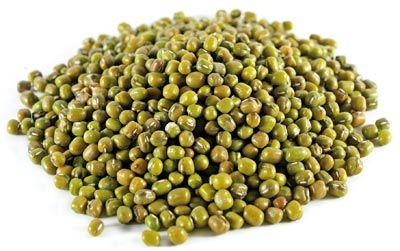 An excellent source of protein, calcium and fibre, beans are one of the most versatile and nutrient-rich low-cost foods. They are easy-to-cook, good in taste and almost completely free of fat [or cholesterol] and sodium. In addition to these benefits, beans such as kabuli chana, rajma, green moong and soybean also contain certain anti-carcinogenic compounds, namely isoflavones, lagnins, phytic acid, saponins and protease inhibitors. What’s more, sprouting beans helps perk the nutrient quotient even further.
An excellent source of protein, calcium and fibre, beans are one of the most versatile and nutrient-rich low-cost foods. They are easy-to-cook, good in taste and almost completely free of fat [or cholesterol] and sodium. In addition to these benefits, beans such as kabuli chana, rajma, green moong and soybean also contain certain anti-carcinogenic compounds, namely isoflavones, lagnins, phytic acid, saponins and protease inhibitors. What’s more, sprouting beans helps perk the nutrient quotient even further.
Whole grains
 The role of whole grains in providing us with energy-giving carbohydrates, dietary fibre, B complex vitamins and essential fatty acids is widely known. While one may choose to add them in the diet by shopping for fortified attas or branded cereal mixes; the cheaper and natural sources such as jowar, bajra, nachni [or ragi], oatmeal and whole wheat flours work equally well. Whole wheat chapattis, jowar bhakris, oat porridge, brown rice khichdi and nachni upma are healthy, yet economical options.
The role of whole grains in providing us with energy-giving carbohydrates, dietary fibre, B complex vitamins and essential fatty acids is widely known. While one may choose to add them in the diet by shopping for fortified attas or branded cereal mixes; the cheaper and natural sources such as jowar, bajra, nachni [or ragi], oatmeal and whole wheat flours work equally well. Whole wheat chapattis, jowar bhakris, oat porridge, brown rice khichdi and nachni upma are healthy, yet economical options.
Green leafy vegetables
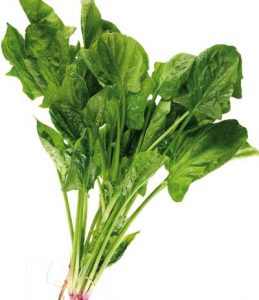 The flavourful leafy greens are undoubtedly a wallet-friendly nutrition storehouse and it is not just about being low in calorie and rich in fibre. Greens like spinach, radish leaves, fenugreek [methi] and are packed with free radical fighting potent antioxidants like vitamin A, C, E and B complex and growth promoting minerals like calcium, iron, and zinc.
The flavourful leafy greens are undoubtedly a wallet-friendly nutrition storehouse and it is not just about being low in calorie and rich in fibre. Greens like spinach, radish leaves, fenugreek [methi] and are packed with free radical fighting potent antioxidants like vitamin A, C, E and B complex and growth promoting minerals like calcium, iron, and zinc.
Eggs
 When it comes to ‘all-in-one health foods’, it is hard to beat eggs. Eggs are an awesome and low-cost source of good quality proteins with high bioavailability. Their contribution as a food source for choline [required for nerve transmission], carotenoids [lutein in eggs may prevent cataracts and macular degeneration] and vitamin B12 is profound. Though a healthy adult with moderate activity can eat an egg every day, people with history of heart trouble should restrict themselves to egg whites. Vegetarians may opt for soybean or cottage cheese as an alternative.
When it comes to ‘all-in-one health foods’, it is hard to beat eggs. Eggs are an awesome and low-cost source of good quality proteins with high bioavailability. Their contribution as a food source for choline [required for nerve transmission], carotenoids [lutein in eggs may prevent cataracts and macular degeneration] and vitamin B12 is profound. Though a healthy adult with moderate activity can eat an egg every day, people with history of heart trouble should restrict themselves to egg whites. Vegetarians may opt for soybean or cottage cheese as an alternative.
Bananas
 Though it is said that, ‘An apple a day keeps the doctor away’; cheaper fruits such as bananas, chickoo and guava don’t really lag behind nutritionally. Bananas are high in soluble fibre, fruit pectins, natural sugar, magnesium and potassium and can be enjoyed as a breakfast accompaniment, healthy snack, or dessert alternative.
Though it is said that, ‘An apple a day keeps the doctor away’; cheaper fruits such as bananas, chickoo and guava don’t really lag behind nutritionally. Bananas are high in soluble fibre, fruit pectins, natural sugar, magnesium and potassium and can be enjoyed as a breakfast accompaniment, healthy snack, or dessert alternative.
Amla
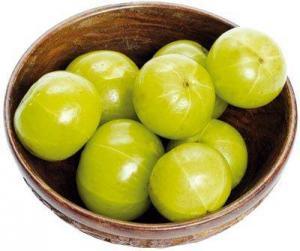 This incredible health food is abundant in vitamin C—a core nutrient needed to maintain heart, digestive and skin health. Amla [also referred to as Indian gooseberry] contains good amounts of fibre, vitamins and tannins. Drinking a glass of amla juice every morning boosts immunity and alleviates eye problems, constipation and hair fall. Amla can be made into chutneys, murabbas, and pickles or eaten during and after meals in raw/dried form.
This incredible health food is abundant in vitamin C—a core nutrient needed to maintain heart, digestive and skin health. Amla [also referred to as Indian gooseberry] contains good amounts of fibre, vitamins and tannins. Drinking a glass of amla juice every morning boosts immunity and alleviates eye problems, constipation and hair fall. Amla can be made into chutneys, murabbas, and pickles or eaten during and after meals in raw/dried form.
Flaxseeds
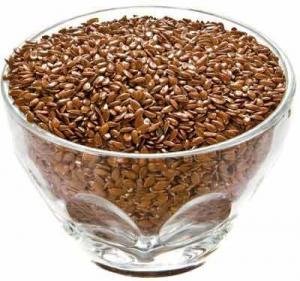 Yet another inexpensive healthy food with valuable nutrient content is flaxseeds or alsi. Intake of omega-3 fatty acids [as in almonds and olive oil] is linked with lowering of blood cholesterol levels, triglycerides and blood pressure. Flaxseeds are rich in these heart-friendly omega-3 fatty acids [ALA or alpha linolenic acid] and also in insoluble fibre and cancer-fighting lignans. Moderate intake of flaxseeds [1 – 2 tbsp per day] shows positive effects in prevention of breast cancer and heart problems. Roasted and ground flaxseeds can be sprinkled on salads, subzis, breakfast items like upma, poha and breads or made into dry chutney with garlic and black salt.
Yet another inexpensive healthy food with valuable nutrient content is flaxseeds or alsi. Intake of omega-3 fatty acids [as in almonds and olive oil] is linked with lowering of blood cholesterol levels, triglycerides and blood pressure. Flaxseeds are rich in these heart-friendly omega-3 fatty acids [ALA or alpha linolenic acid] and also in insoluble fibre and cancer-fighting lignans. Moderate intake of flaxseeds [1 – 2 tbsp per day] shows positive effects in prevention of breast cancer and heart problems. Roasted and ground flaxseeds can be sprinkled on salads, subzis, breakfast items like upma, poha and breads or made into dry chutney with garlic and black salt.
Curd
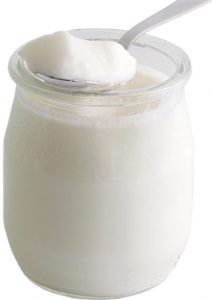 The high nutritional value and ease of preparation qualify curd as a key food in budget eating. Rich in calcium, protein and vitamin B12, low-fat curd houses live bacteria [probiotics], which help improve digestion and cure stomach ailments. Consume a cup of curd every day—plain or as a salad dressing [instead of white sauce or mayo]. Eating curd is a great way to improve bone health, especially for elderly, people with osteoporosis and who are lactose intolerant.
The high nutritional value and ease of preparation qualify curd as a key food in budget eating. Rich in calcium, protein and vitamin B12, low-fat curd houses live bacteria [probiotics], which help improve digestion and cure stomach ailments. Consume a cup of curd every day—plain or as a salad dressing [instead of white sauce or mayo]. Eating curd is a great way to improve bone health, especially for elderly, people with osteoporosis and who are lactose intolerant.
Jaggery
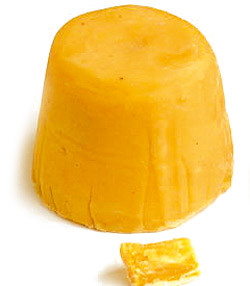 Switch over to natural and unrefined jaggery from refined white sugar and satisfy your sweet tooth in a healthy way. Rich in natural goodness of minerals such as iron, magnesium and fibre, jaggery is considered to be beneficial in treating anaemia, throat problems, indigestion and other respiratory disorders.
Switch over to natural and unrefined jaggery from refined white sugar and satisfy your sweet tooth in a healthy way. Rich in natural goodness of minerals such as iron, magnesium and fibre, jaggery is considered to be beneficial in treating anaemia, throat problems, indigestion and other respiratory disorders.
Water
 Finally, the cheapest and, perhaps, one of the most important components of any diet plan is water. Drinking water often takes a backseat as we don’t consider it worthy to be included as a nutrient. However, water must form the mainstay of any eating regime as it works as a detoxifying, hydrating and cooling agent. Aim to drink enough water per day to improve your skin, digestion, and physical and mental performance.
Finally, the cheapest and, perhaps, one of the most important components of any diet plan is water. Drinking water often takes a backseat as we don’t consider it worthy to be included as a nutrient. However, water must form the mainstay of any eating regime as it works as a detoxifying, hydrating and cooling agent. Aim to drink enough water per day to improve your skin, digestion, and physical and mental performance.
Furthermore, try to eat seasonal fruits and vegetables as they are cheaper, fresher and richer in nutrients that are required for that season. Home-cooked food is definitely healthier for both—our pockets and waists, than restaurant meals. So make cooking a fun and regular family event. Eating healthy foods need not be an expensive affair. If we choose wisely, the foods that cost the least may actually become the best foods for our health.

Pretty much covered the list of most nutritious foods yet in budget. good job Panchali!